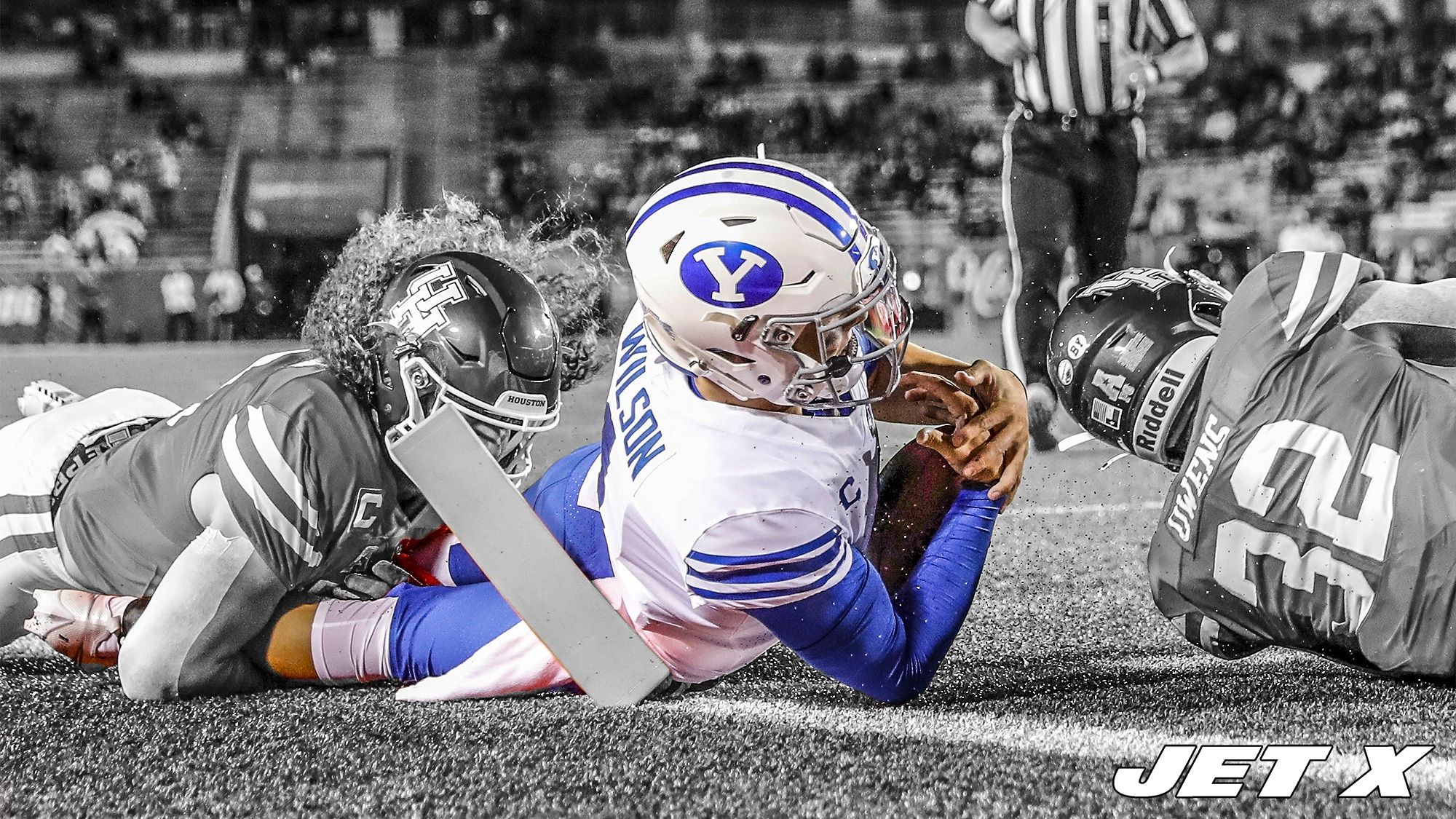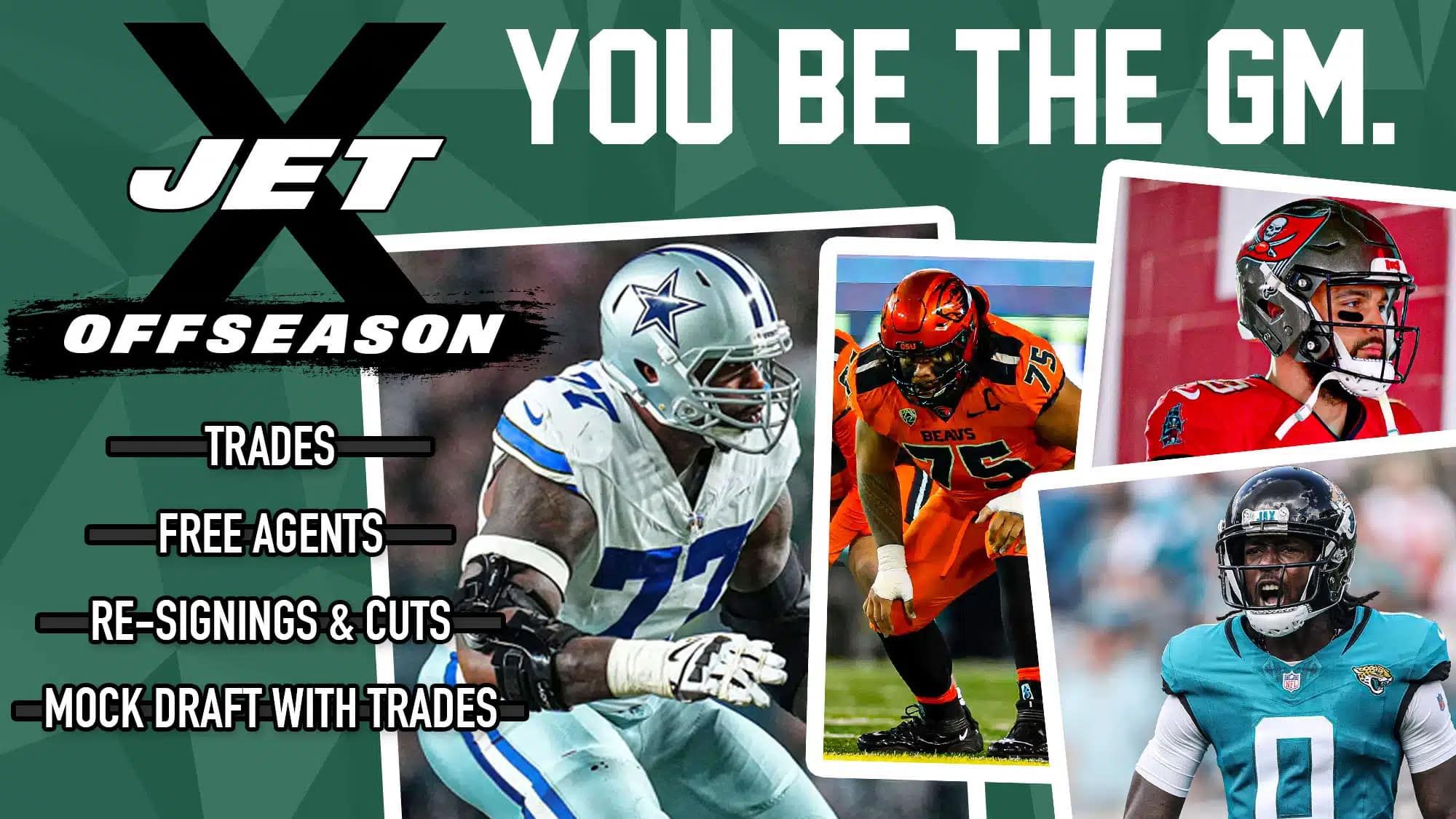To knock Zach Wilson’s 2020 schedule and claim “lack of competition” is to not think critically across the quarterback rookie class board.
Zach Wilson didn’t play anybody. You have already and undoubtedly heard that sentiment echoed loudly across all major sports networks. Whether it’s in defense of Justin Fields or Sam Darnold, the Wilson-faced-cupcakes narrative is alive, well and building to an exciting conclusion that’ll come our way on the primetime Thursday night of April 29.
The meat of the argument goes a little like this: BYU’s schedule featured the Troys, Houstons and Louisiana Techs of the world that could never hold the jockstraps of the SEC big boys. And when Wilson was forced to take on a top team—No. 18 Coastal Carolina, for instance—he simply couldn’t get the job done. (Or, is that not even the case?)
Oh, my; this new-age informational world has taken a turn for the worse. The lack of critical thinking in this area is astounding.
Truthfully, it’s tough to believe I’m even touching on the subject, but here we go. Judging a situation such as Wilson’s should never involve only the opponent’s overall talent.
Think of it in schoolyard terms
Most of us have been in the schoolyard situation that is choosing sides. A sandlot is chosen, two captains are selected, and away everybody goes.
Sometimes, you end up on the more talented squad. Other times, the sweat needed to keep your sorry team competitive ruins the back-half of the school day. (As if you were interested in school work anyway.)
When judging Wilson, Fields and even Trevor Lawrence, Wilson is the one who was placed in the toughest collegiate situation. How anybody could argue otherwise is a tough one to comprehend.
Lawrence, a kid who’s been groomed for the spotlight since day No. 1, understands how to act. At least that’s what we all believe. When has he been forced to deal with consistent odds that needed his quarterback wizardry?
Nearly every time Lawrence stepped onto a collegiate football field, he came to the party equipped with the better team. While there’s no question that his talent helped Clemson to the 2018 college football national championship, the kid was operating with a stacked deck.
The year prior to Lawrence’s arrival saw Dabo Swinney’s team finish 12-2. The year before that featured Deshaun Watson leading the Tigers to a thrilling 35-31 victory over Alabama in the title game.
Clemson has won double-digit games stretching back to 2011. Notre Dame represented its chief rival this past season—a school that has regularly demonstrated that it doesn’t belong in the college football playoff (talent-wise). Although Miami is doing its best to revive a once-proud program, Florida State, Boston College, Pittsburgh and Virginia Tech aren’t exactly world-beaters these days.
Fields’s situation was similar. Nearly every Saturday, Fields stepped onto the field with the better talent on his side.
The Buckeyes have won double-digit games since Urban Meyer took the helm in 2012. Fields’s arrival in 2019 saw Ohio State improve exactly zero games. The program’s 13-1 finish that year matched its 13-1 mark the year prior.
Many would argue that the Big Ten’s prowess is head and shoulders above the ACC, yet what in the world happened to Penn State, Michigan and Michigan State this past season?
The kid’s clutch ability was on full display in the playoff—something that deserves great recognition and consideration—but how much better was Ohio State’s roster as compared to Clemson’s? It’s tough to know.
Wilson, the kid whose stock is rising as angrily as a Mariano Rivera October cutter, didn’t take nearly the same level of competition. He also didn’t have the same talent on his side. Most importantly, it feels like he made the greatest overall impact.
Play: 👉 the Jet X Offseason Simulator
Follow the impact
BYU finished 11-1 this past season while capping it with a blowout victory over UCF in the famed Boca Raton Bowl. The year prior saw the Cougars go 7-6. The year before that saw them also put up a 7-6 mark. In 2017, BYU finished a disheartening 4-9.
Wilson’s overall impact on his program stands out from the crowd. The kid took a 4-9 team to back-to-back seven-win seasons only to dominate the schedule this past year.
It has been 12 years since multiple BYU players have been picked in the NFL draft. Wilson comes along and the school suddenly has four guys primed to get picked this time around. The last time the school had this much talent ready to turn pro (NFL) was in 2002 when five guys were selected.
Coincidence or something else? Head coach Kalani Sitake took over a 9-4 squad in 2016 and finished with the same mark. After another nine-win season, BYU dipped to four wins in 2017. Wilson comes along and seemingly changes everything.
Obviously, impact on wins and losses isn’t everything. Patrick Mahomes did just about everything he could for Texas Tech to no avail in a Big 12 that plays no defense. On the other hand, the small school guys who make a tremendous impact usually work out.
Ben Roethlisberger lifted a Miami of Ohio program. Josh Allen lifted a two-win Wyoming team to consecutive eight-win campaigns. Again, no rule is hard and fast when evaluating quarterbacks, but simply pointing to the level of competition does nothing but cause mass confusion while producing weak arguments.
Quarterbacks that haven’t taken on the top collegiate talent have already proven themselves historically. Instead, it’s important to view the quarterback’s overall odds.
Of the three, Lawrence, Fields and Wilson, which guy entered the program and each game ahead of the curve? Which guy enjoyed the greatest talent advantage? And which guy did the most to lift his program?
When this topic is picked apart in an objective, logical manner, the answers to those questions are pretty damn obvious.


